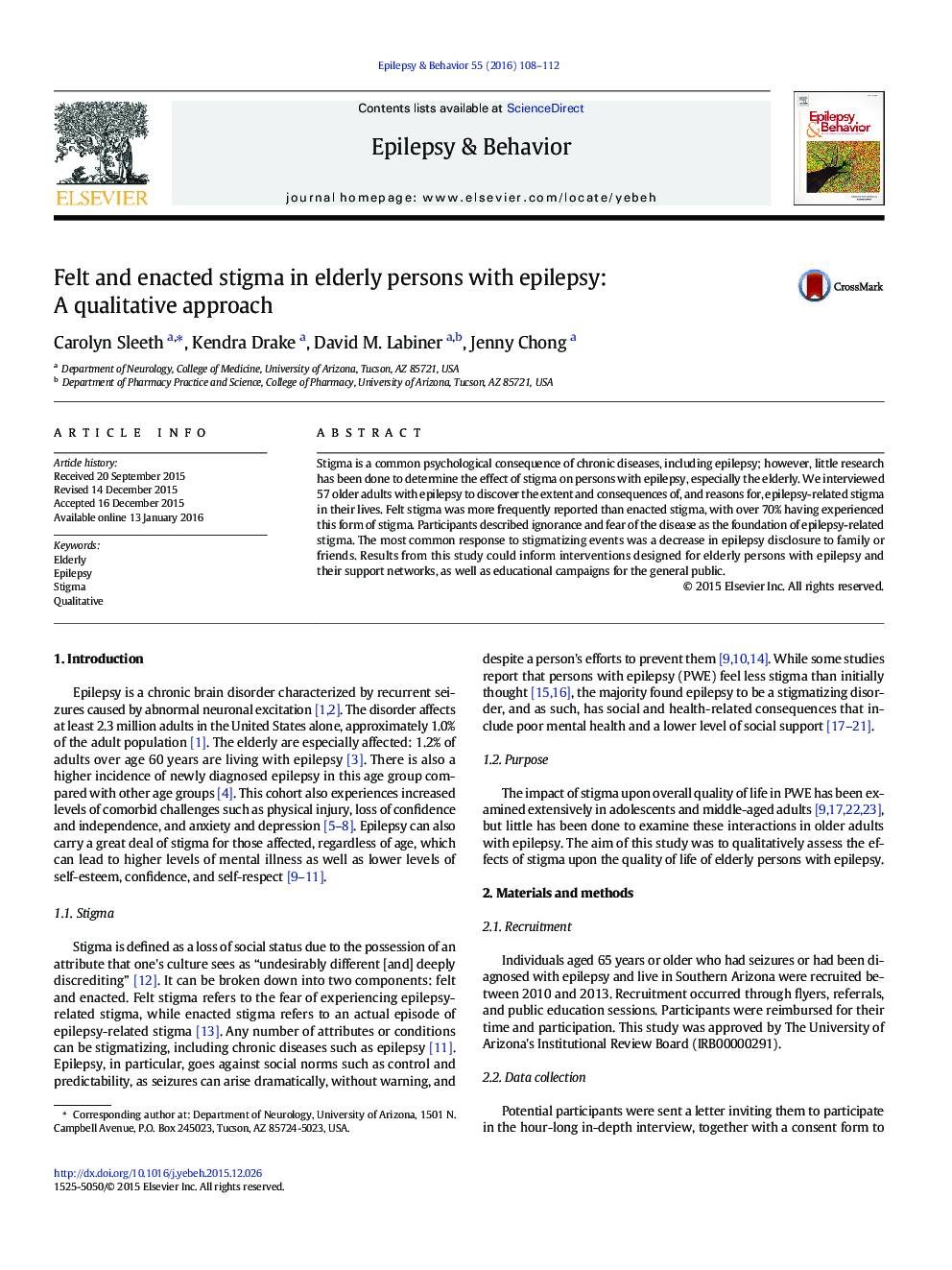| Article ID | Journal | Published Year | Pages | File Type |
|---|---|---|---|---|
| 6010698 | Epilepsy & Behavior | 2016 | 5 Pages |
â¢Older adults with epilepsy experience felt and enacted stigma.â¢Felt stigma is more commonly reported than enacted stigma.â¢Stigma results in less disclosure of epilepsy status to friends and family.â¢Fear and lack of knowledge are associated with epilepsy-related stigma.
Stigma is a common psychological consequence of chronic diseases, including epilepsy; however, little research has been done to determine the effect of stigma on persons with epilepsy, especially the elderly. We interviewed 57 older adults with epilepsy to discover the extent and consequences of, and reasons for, epilepsy-related stigma in their lives. Felt stigma was more frequently reported than enacted stigma, with over 70% having experienced this form of stigma. Participants described ignorance and fear of the disease as the foundation of epilepsy-related stigma. The most common response to stigmatizing events was a decrease in epilepsy disclosure to family or friends. Results from this study could inform interventions designed for elderly persons with epilepsy and their support networks, as well as educational campaigns for the general public.
